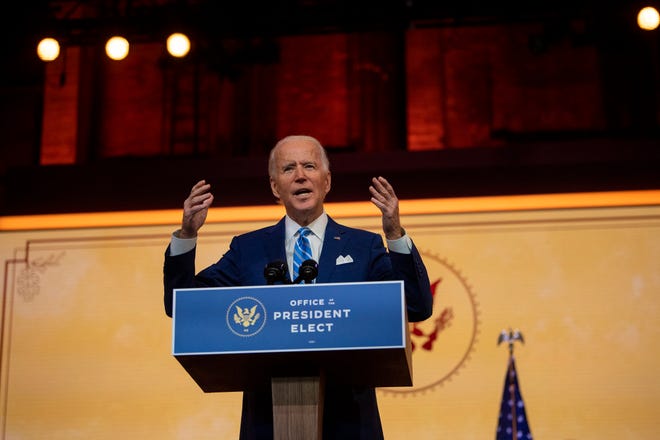Tokyo 2020 chief pressed to resign after saying women talked too much at meetings
Yoshiro Mori, the top of the Tokyo 2020 Olympics organising committee, has conceded he might have to resign after making sexist remarks about “talkative” feminine sports activities directors.
Mori, a former Japanese prime minister with a historical past of demeaning remarks, instructed a gathering of the Japanese Olympic Committee (JOC) that meetings attended by too many women tended to “drag on” as a result of they talked too much.
Referring to his time as chairman of the Japan Rugby Football Union, Mori stated: “Women have a strong sense of rivalry. If one raises her hand to speak, all the others feel the need to speak, too. Everyone ends up saying something.”
He added: “If I say too much, the newspapers are going to write that I said bad things, but I heard somebody say that if we are to increase the number of female board members, we have to regulate speaking time to some extent, or else we’ll never be able to finish. I am not going to say who said that.”
“We have about seven women at the organising committee but everyone understands their place.”
Accounts by Japanese media current at the net assembly stated a number of attendees laughed, however his feedback had been condemned by feminine politicians and sports activities directors.
“His comments run counter to the spirit of Olympics that denounces discrimination and calls for friendship, solidarity and fairness,” Renho, a outstanding opposition MP, tweeted.
Kaori Yamaguchi, a JOC director who has campaigned to elevate the variety of women in Japanese sports activities administration, accused Mori, 83, of undermining the Tokyo Games’ message.
“Gender equality and consideration for people with disabilities were supposed to be a given for the Tokyo Games,” she stated, in accordance to the Kyodo information company. “It is unfortunate to see the president of the organising committee make a remark like that.”
“Mori, please resign,” was trending on Twitter in Japan on Thursday morning, whereas Noriko Mizoguchi, a former judo silver medallist, tweeted the International Olympic Committee’s code of ethics and stated any type of harassment must be rejected.
Mori later apologised for the “careless” remarks in an interview with the Mainichi Shimbun, however insisted he had not meant to demean women. He acknowledged, nevertheless, that criticism of his feedback – together with from his spouse, daughter and granddaughter – might power him to give up.
“My wife was angry with me last night,” he instructed the newspaper. “She said, ‘You’ve gone and said something stupid again. You make an enemy of women and I’m the one who has to suffer.’”
The JOC is making an attempt to enhance feminine illustration by doubling the proportion of women on its 25-member board of administrators to 40%.
Mori had already drawn criticism by insisting the Tokyo Olympics, whose future is once more in doubt due to the coronavirus, would go forward “regardless” of how the pandemic seems by the point they’re due to open on 23 July.
In response, the comic Atsushi Tamura, who was due to run within the Olympic torch relay, due to begin at the top of March, stated he would now not participate.
It is just not the primary time Mori, a conservative politician who’s shut to Shinzo Abe – Japan’s prime minister when Tokyo received the Olympic bid in 2013 – has made controversial remarks about sport.
In 2016, he instructed Japanese athletes about to compete within the Rio Olympics that until they sang Kimigayo, Japan’s nationwide anthem, in a loud voice they need to take into account themselves unfit to represent their country, after they’d delivered a lacklustre rendition of the track.
During the 2014 winter Olympics in Sochi, Mori singled out the favored determine skater Mao Asada for criticism after she failed to execute a triple axel throughout her brief programme. “That girl, she’s always falling at a critical moments,” he stated.
He additionally questioned the flexibility of Chris and Cathy Reed, who had been born within the US however represented Japan within the ice dance competitors in Sochi. “They live in America,” he stated. “Although they’re not good enough for the US Olympic team, we include these naturalised citizens in our team.”



